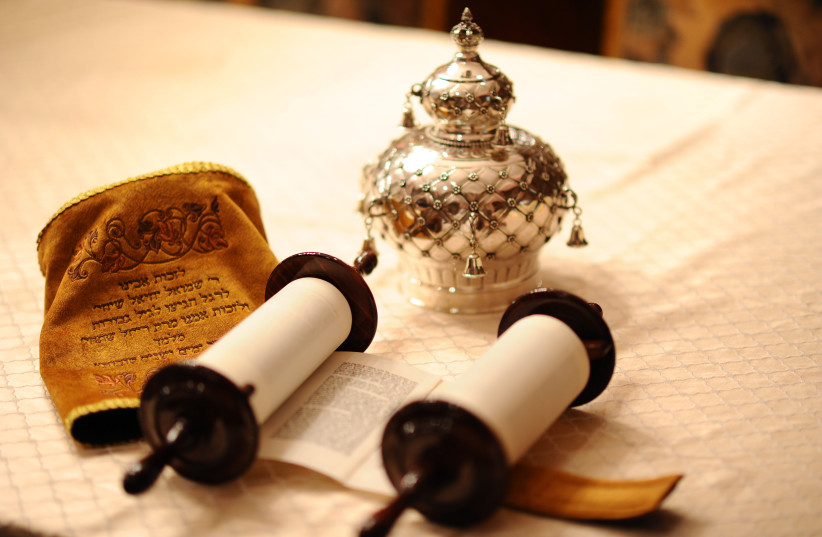This week, we read about the Children of Israel leaving Egypt “with a high hand” (Exodus 14:8) after centuries of slavery under the yoke of the Egyptian empire. The 10 plagues we read about in the previous parashot were not enough to teach the pharaoh a lesson, and he chased the Israelites with his frightening army. The chase ends with the wonder of the splitting of the Reed Sea for the Israelites to pass through while the Egyptian army and the pharaoh drown.
Parashat Beshalach opens with a rare verse in that it offers a detailed explanation for a decision of God’s.
“It came to pass when Pharaoh let the people go, that God did not lead them [by] way of the land of the Philistines for it was near, because God said, ‘Lest the people reconsider when they see war and return to Egypt.’” (Exodus 13:17)
This verse lays out God’s considerations in His decision to lead the Jewish people to the desert after the exodus from Egypt. Geographically, logic would dictate they make the journey from Egypt to Canaan, later the Land of Israel, through the land of the Philistines on the southern shores of Canaan. But God decided to lead His nation on the longer route through the desert and the Reed Sea. The explanation offered by the Torah is that God was concerned that if the Children of Israel would face war so shortly after their exodus from Egypt, they might want to go back to Egypt.
When we continue reading the parasha, we read that the Children of Israel walk toward the Reed Sea while the pharaoh leads his army toward them to return them to slavery. The Israelites are filled with fear and are under siege. The sea is on one side and the Egyptian army is quickly closing in on them from the other. Moses then asked of them:

“Don’t be afraid! Stand firm and see the Lord’s salvation that He will wreak for you today, for the way you have seen the Egyptians is [only] today… The Lord will fight for you, but you shall remain silent.” (Exodus 14:13-14)
Moses calls upon the nation to do nothing, with the belief that God will defeat the Egyptians for them. And indeed, the incredible happens. The Reed Sea splits and they cross it safely. The Egyptians also stepped into the split sea, and while crossing it, God returned it to its natural state and the entire Egyptian army drowned.
A question arises when examining this story. If indeed God was concerned that the Children of Israel would return to Egypt out of fear, why was He not concerned that the pursuing Egyptian army would evoke the same reaction? Undoubtedly, the Egyptian army was no less a threatening power than the Philistine army. There is also no doubt that if God drowned the Egyptian army in the Red Sea, He could also have destroyed the Philistine army as well. What difference did it make, then, if the nation would encounter the Egyptian or the Philistine army?
The answer is that there is an essential difference between being liberated from exile, and redemption. Liberation from Egyptian exile was performed by God Himself, with no human intervention. The 10 plagues, which subdued the Egyptians, were all divine miracles, like the splitting of the Reed Sea. But for the Children of Israel to enter the Land of Israel, conquer it and establish in it a society founded on values of justice and morality, for them to reach redemption – they had to do it themselves; with divine assistance, of course, but with human strength and courage. And for this, they were still unprepared.
The Israelites had lived for centuries as slaves in a foreign land. God did not want them to enter the Promised Land as a nation of slaves. God wanted them to undergo a process of empowerment in the desert, to become physically and spiritually mature and united. This process would prepare them to be a nation in its land, a nation that takes responsibility for its own fate, a nation of strength and of lofty values, a nation led, assisted and supported by God, but one that does not rely on Him to do things for it.
Following many years in the desert, when the Children of Israel stood at the gates of the Promised Land, God turned to Joshua bin Nun, the nation’s leader, and repeatedly entreated:
“Be strong and have courage... Just be strong and very courageous... Did I not command you, be strong and have courage!” (Joshua 1:6-9)
Let those words reverberate and guide us in all our actions – both the personal and the public. ■
The writer is rabbi of the Western Wall and Holy Sites.
